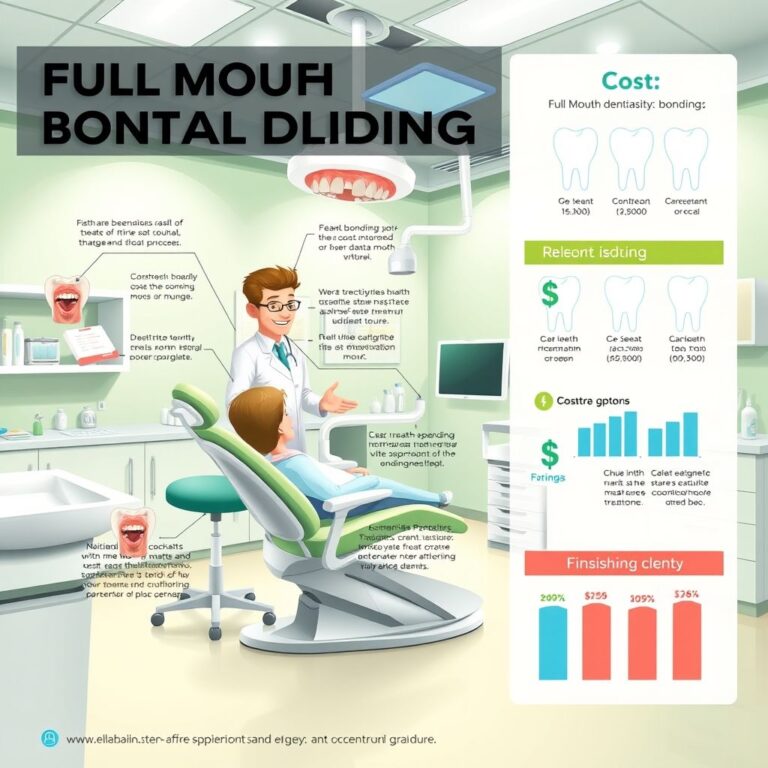Dental Bonding Cost in Maryland
Dental bonding is a popular cosmetic dental procedure used to improve the appearance of teeth. It involves applying a tooth-colored resin material to the teeth and hardening it with a special light, effectively bonding the material to the tooth to improve a person’s smile. In Maryland, as in many parts of the United States, the cost of dental bonding can vary significantly based on several factors. This comprehensive guide aims to provide detailed information about dental bonding cost in maryland, benefits, and considerations for those residing in Maryland.

What is Dental Bonding?
Dental bonding, also known as composite bonding, is a procedure in which a dentist applies a composite resin to one or more of a patient’s teeth to repair damage. This procedure can be used to repair chipped, cracked, or broken teeth, to improve the appearance of discolored teeth, to close spaces between teeth, to make teeth look longer, or to change the shape of teeth.
Benefits of Dental Bonding
- Aesthetic Improvement: Dental bonding can significantly enhance the appearance of teeth and overall smile.
- Quick and Painless: The procedure is generally quick and painless, often completed in one visit.
- Cost-Effective: Compared to other cosmetic dental procedures like veneers and crowns, dental bonding is more affordable.
- Minimal Enamel Removal: Unlike veneers and crowns, dental bonding usually requires minimal removal of tooth enamel.
The Dental Bonding Procedure
- Preparation: Minimal preparation is needed for dental bonding. Anesthesia is usually not required unless the bonding is being used to fill a decayed tooth.
- Bonding Process: The dentist will use a shade guide to select the composite resin color that closely matches the color of your tooth. The surface of the tooth is then roughened, and a conditioning liquid is applied to help the bonding material adhere.
- Application: The tooth-colored resin is applied, molded, and smoothed to the desired shape.
- Curing: An ultraviolet light or laser is used to harden the material.
- Finishing Touches: After the resin hardens, the dentist will further trim, shape, and polish it to match the sheen of the rest of the tooth surface.
Cost of Dental Bonding in Maryland
The cost of dental bonding in Maryland varies depending on several factors:
- Complexity of the Case: More complex cases requiring more extensive work can be more expensive.
- Number of Teeth: The cost increases with the number of teeth requiring bonding.
- Dentist’s Experience: Experienced dentists with specialized training may charge more for their expertise.
- Location: Costs can vary by location within Maryland. For example, urban areas may have higher costs compared to rural areas.
Average Cost
On average, the cost of dental bonding in Maryland ranges from $300 to $600 per tooth. Below is a table summarizing the cost variations based on different factors.
| Factor | Cost Range per Tooth |
|---|---|
| Simple Bonding | $300 – $400 |
| Moderate Bonding | $400 – $500 |
| Complex Bonding | $500 – $600 |
| Highly Experienced Dentists | $600+ |
| Urban Area (e.g., Baltimore) | $400 – $600 |
| Rural Area | $300 – $450 |
Factors Affecting the Cost
- Material Quality: Higher quality materials used for bonding can increase costs.
- Additional Treatments: Any additional dental work required prior to bonding, such as cleaning or cavity filling, will add to the overall cost.
- Insurance Coverage: Some dental insurance plans may cover part of the cost of bonding, particularly if it is necessary for dental health rather than purely cosmetic reasons.
Benefits and Drawbacks
Benefits:
- Affordable Cosmetic Enhancement: Dental bonding is one of the most cost-effective ways to improve your smile.
- Quick Procedure: Most bonding procedures can be completed in a single visit.
- Versatility: Can be used for various dental issues, from repairing chipped teeth to closing gaps.
Drawbacks:
- Durability: The bonding material is not as strong as natural teeth and may chip or break off.
- Staining: Composite resin is more prone to staining compared to other materials like crowns.
- Longevity: Typically lasts 3-10 years, after which it may need to be replaced.
Choosing the Right Dentist in Maryland
When choosing a dentist for dental bonding in Maryland, consider the following:
- Experience and Expertise: Look for a dentist with specific experience in cosmetic dentistry and dental bonding.
- Patient Reviews: Check patient reviews and testimonials to gauge the quality of care and patient satisfaction.
- Consultation: Schedule a consultation to discuss your needs, expectations, and the costs involved.
- Technology: Ensure the dental office uses modern technology and materials for the best results.
Dental Bonding vs. Other Cosmetic Procedures
Dental bonding is often compared with other cosmetic dental procedures like veneers and crowns. Here is a comparison:
Dental Bonding vs. Veneers
- Cost: Bonding is less expensive than veneers.
- Procedure Time: Bonding typically takes one visit, whereas veneers may require multiple visits.
- Durability: Veneers are more durable and resistant to staining compared to bonding.
Dental Bonding vs. Crowns
- Coverage: Crowns cover the entire tooth, while bonding is applied only to the needed area.
- Cost: Crowns are more expensive than bonding.
- Strength: Crowns are stronger and more durable than bonding.
Maintaining Bonded Teeth
- Good Oral Hygiene: Brush twice daily and floss regularly.
- Avoid Hard Foods: Avoid biting on hard objects like ice and hard candies.
- Regular Dental Checkups: Visit your dentist regularly for checkups and maintenance.
- Avoid Staining Substances: Minimize consumption of coffee, tea, and tobacco to prevent staining.
Conclusion
Dental bonding is an effective, affordable, and quick solution for improving the appearance of your teeth. While it may not be as durable as other cosmetic options, its benefits make it a popular choice for many individuals in Maryland. By understanding the costs, benefits, and maintenance involved, you can make an informed decision about whether dental bonding is right for you.
FAQs
Q1: How long does dental bonding last? A1: Dental bonding typically lasts between 3 to 10 years, depending on the location of the bonding, your oral habits, and the care you provide.
Q2: Is dental bonding painful? A2: The procedure is generally painless and does not usually require anesthesia unless bonding is being used to fill a decayed tooth.
Q3: Does insurance cover dental bonding? A3: Dental insurance may cover bonding if it is deemed necessary for dental health. For cosmetic purposes, it is less likely to be covered.
Q4: Can dental bonding be whitened? A4: No, composite resin used in bonding cannot be whitened. It is advisable to whiten your teeth before the bonding process and match the resin to the new shade.
Q5: How do I know if I am a good candidate for dental bonding? A5: A good candidate for dental bonding is someone with minor cosmetic dental issues like chipped, cracked, or discolored teeth, and who maintains good oral hygiene practices.
Additional Resources
- American Dental Association (ADA): www.ada.org
- Maryland State Dental Association (MSDA): www.msda.com
By reviewing the comprehensive details provided, you can make an informed decision about pursuing dental bonding in Maryland, ensuring a brighter, more confident smile.


